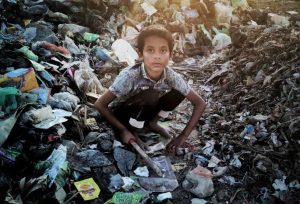Rohingya crisis marks five years
Five years ago this month Myanmar’s military launched a violent crackdown that sparked the exodus of as many as 800,000 Rohingya refugees i006Eto neighbouring Bangladesh.
Today, as many as one million mostly Muslim Rohingya still live in cramped, under-resourced refugee camps in southern Bangladesh.
The US has formally declared the persecution of Rohingya by Myanmar’s military a genocide but five years after the first outrages were committed later, conditions in the camps have worsened.
In late August 2017, more than 700,000 Rohingyas fled the military campaign of ethnic cleansing in Rakhine State, joining about 300,000 who fled earlier crackdowns and were already living in the sprawling network of camps in neighbouring Bangladesh.
Five years later, they’re still struggling to obtain even the most basic necessities, like food, and there is little hope things will improve.
About half of the Rohingya refugees in the camps at Cox’s Bazar are children.
Bangladesh’s government has not allowed them access to any formal education. It also hasn’t given the adult refugees any employment rights, leaving the entire population of the camp reliant entirely on humanitarian aid which has effectively decreased over the years.
Makeshift homes in the camps are vulnerable to fires that can spread with devastating speed. Blazes have killed dozens of refugees over the past five years, including one that tore through the camp in March 2021, killing 15 people and leaving hundreds injured and thousands homeless.
The camps are also susceptible to flooding during South Asia’s rainy Monsoon season.
Bangladesh was initially praised for hosting such a large number of refugees, but it’s also been criticised for keeping the refugees isolated in the militarised camps, and not letting them work.
There was also an outcry over the government’s decision to forcibly relocate thousands of Rohingya to the remote low-lying island of Bhasan Char despite safety concerns.
Bangladesh’s government has said the Rohingya need to be repatriated to Bangladesh.
But the UN’s human rights chief Michelle Bachelet, who visited the Cox’s Bazar camp this month, said the conditions in Myanmar still weren’t right for the Rohingyas to return home.
 The Rohingya are believed to have migrated from what is now Bangladesh to Rakhine, then known as Arakan, during the 17th century.
The Rohingya are believed to have migrated from what is now Bangladesh to Rakhine, then known as Arakan, during the 17th century.
When Myanmar gained independence from British colonial rule in 1948, the Rohingya were left stranded in Rakhine state; no longer Bangladeshi, but viewed by the newly-independent nation of Burma as outsiders.
They were denied citizenship under Myanmar’s 1982 Citizenship Law, effectively rendering them stateless.
Rohingya author and refugee Habibrahman, says most Rohingyas do not want to return to Myanmar while the military remains in power.
‘Habib’, now living in regional Victoria as a refugee, says the Burmese military have a history of violence and persecution against the Rohingya people.
“My fear is that there will be a new campaign of ethnic cleansing against the Rohingya,” he said.
“They are cleansing our people time after time, and then pushing our people from the country. They are demolishing our historical existence,” Habib said.
“There is an ongoing genocide and I can’t stay silent. We have to make people aware. The international community needs to apply pressure,” he said.
Habib has escaped the Burmese military but he continues to advocate for the hundreds of thousands of his compatriots living in limbo in Bangladesh refugee camps and countless others struggling under the yoke of Burmese government oppression.
He says he fears it might be years before democracy returns to his homeland.
‘Habib’ has written a book about his own story and the suffering of his people to draw attention to their plight.
Titled ‘First They Erased Our Name’ – it tells of Habib becoming an outlaw in his own country and subsequent escape.
First published in French, he hopes it will bring fresh attention to what he describes as historical prejudices behind the plight of his long embattled people.
Habib says he also hopes the book preserves the story of the repression of the Rohingyas for future generations of his people.
“The Burmese Government have repeatedly launched these cleansing actions against my people – they did in 1978 and in 1991,” he said.
“We need the international community to hold them to account,” Habib said.












